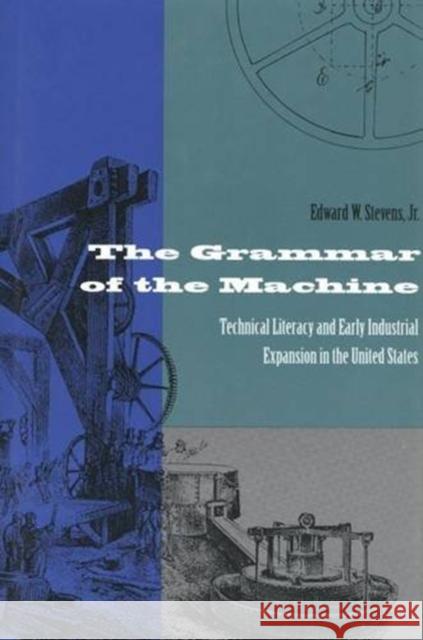Grammar of the Machine: Technical Literacy and Early Industrial Expansion in the United States » książka
Grammar of the Machine: Technical Literacy and Early Industrial Expansion in the United States
ISBN-13: 9780300061062 / Angielski / Twarda / 1995 / 224 str.
During the late eighteenth and early nineteenth centuries, the American economy moved toward a manufacturing base and mass production, creating a demand for a literacy that encompassed not only the traditional alphabetic form of expression but also scientific and mathematical notation and spatial and graphic representation. How did the world of learning respond to this demand? What kinds of educational institutions, teachers, textbooks, and patterns of instruction emerged?
Edward Stevens, Jr., describes the important technological changes that took place in antebellum America and the challenges they posed for education. Investigating the instruction, curricula, and textbooks used in the common schools, in the mechanics' institutes, and, specifically, at the Troy Female Seminary and the Rensselaer School in upstate New York, he demonstrates how advocates of technical literacy attempted to teach new skills. Stevens shows that the tensions between the liberal and the vocational, between a culture of print and a nonverbal culture of experience, persisted in technical education through the first half of the nineteenth century but were resolved temporarily by a common moral vision.











